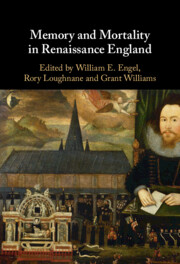This essay provides the first edition and discussion of the ballad When all that is to Was ys brought, copied sometime between 1561 and 1585 into a draft account book relating to the will of Dr William Bill, dean of Westminster (Durham Cathedral Add. MS 243, fol. 93r-v). Its last line, ‘Amen Quoth Iohn heywood’, indicates that its author was the court entertainer John Heywood (b. 1496/7–d. in or after 1578) and internal evidence suggests that it was written shortly before he went into exile on account of his Catholic faith in 1564. The ballad includes references to Heywood’s family and allusions to several works of Thomas More, especially A Dialogue of Comfort, suggesting that it is Heywood’s personal reflection on his spiritual life under four English monarchs. Its subject matter makes it likely that it is also the poem described as ‘a rythme declaringe his own life and nature’, which Heywood sent to William Cecil, Lord Burghley, and Queen Elizabeth via John Wilson in 1574 to support his petition to be allowed to remain in the Spanish Netherlands.


